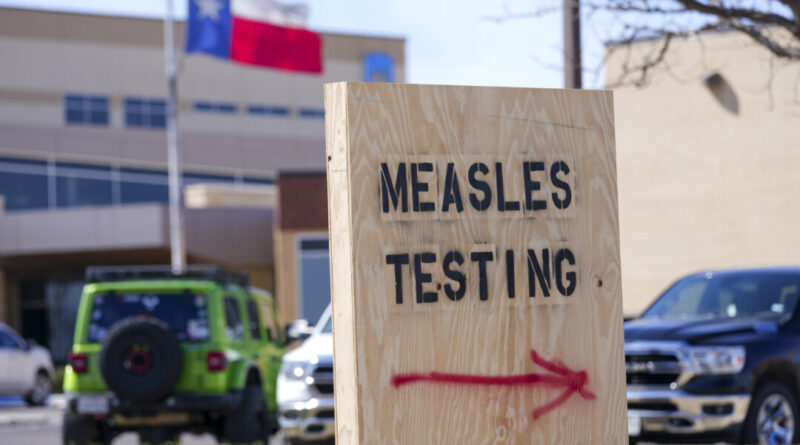Health Secretary Travels to Texas Following Death of Second Child from Measles
In February, the first measles-related death was reported, involving an unvaccinated child of school age.
On Sunday, Health and Human Services (HHS) Secretary Robert F. Kennedy Jr. traveled to Texas following reports of a second measles-related death in an unvaccinated school-aged child.
This announcement marks the second measles-related death in Texas during an ongoing outbreak that has affected hundreds throughout the state. The first fatality occurred in February and also involved an unvaccinated school-aged child.
Kennedy stated that he visited Gaines County to offer condolences to the families of both the 8-year-old and 6-year-old who have passed away and to explore how federal agencies can better assist Texas health officials in managing the outbreak.
According to the HHS secretary, there have been 642 confirmed measles cases across 22 states, with Texas reporting 499 of those cases.
Kennedy mentioned that he dispatched a team from the Centers for Disease Control and Prevention (CDC) to Texas last month to enhance the state’s response to the outbreak by providing pharmacies and state-operated clinics with measles, mumps, and rubella (MMR) vaccines along with other necessary medical supplies.
“Since that deployment, the rates of new cases and hospitalizations have plateaued,” he remarked. “The most effective means to stop the transmission of measles is through the MMR vaccine.”
Kennedy also confirmed that he had spoken with Texas Governor Greg Abbott and offered ongoing support.
“At his request, we have redeployed CDC teams to Texas. We will continue to follow Texas’s lead and offer similar resources to other affected areas,” he said.
Measles is a respiratory virus that can linger in the air for up to two hours, and the CDC indicates that up to 90 percent of unvaccinated individuals exposed will become infected.
This highly contagious disease can produce symptoms including high fever and a rash, with a small fraction of cases resulting in death. The measles outbreak has expanded to 22 states this year, affecting areas including Texas, New Mexico, California, Colorado, and Florida.
Kennedy, an advocate for increased scrutiny on vaccine safety and efficacy, reiterated a similar viewpoint in a March editorial as cases of measles surged in the United States.
“The choice to vaccinate is a personal one. Vaccines not only safeguard individual children from measles, but also enhance community immunity, thereby protecting those who cannot be vaccinated due to medical conditions.”
Kennedy highlighted that the MMR vaccine does not contain the mercury-based preservative thimerosal, which is present in several other vaccines.
The MMR vaccine is usually given in a two-dose series, with the first dose recommended when children reach one year of age. According to the CDC, one dose is 94 percent effective and two doses are 97 percent effective. Possible side effects of the vaccine include fever and nervous system disorders.
Zachary Stieber and Jacob Burg contributed to this report.





